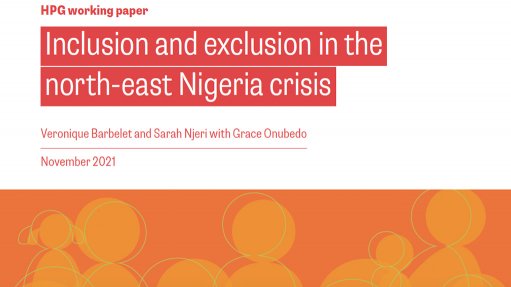
The humanitarian response in north-east Nigeria is an important opportunity to examine barriers to more inclusive humanitarian action in large-scale, complex and protracted displacement crises. Acknowledging the immense operational challenges facing humanitarian actors, this study found that the response is not systematically inclusive, which has led to the exclusion of entire communities, therefore undermining its relevance, effectiveness and impartiality.
Since 2009, the Government of Nigeria has been fighting jihadist insurgent groups in the north-eastern states of Borno, Adamawa and Yobe (the so-called BAY States). The conflict has resulted in years of armed violence that has impacted the lives and livelihoods of civilians in Nigeria and the wider Lake Chad Basin. A large-scale humanitarian response has been in place since 2016 in north-east Nigeria, where an estimated 8.7 million people are in need of humanitarian assistance and protection, 1.92 million are internally displaced and 257,000 have sought refuge in Cameroon, Chad and Niger.
Within this context, this case study examines issues of exclusion and inclusion in humanitarian action. Inclusive action is embedded in the commitment to impartiality requiring humanitarian action to be non-discriminatory and focus on the most urgent cases. While inclusion remains at the core of various policy discussions and commitments, in practice, it falls at the periphery of responses, particularly in complex, protracted humanitarian situations.
This study found that a lack of adequate engagement with diverse communities and consideration of longer-term and structural processes of exclusion, as well as the specific exclusionary effect of the conflict, meant that the humanitarian response further exacerbated and contributed to the exclusion of already marginalised populations. The paper makes recommendations for immediate action by humanitarian actors in north-east Nigeria, as well as recommendations for tracking exclusion and supporting inclusive humanitarian action more broadly.
Report by the Overseas Development Institute